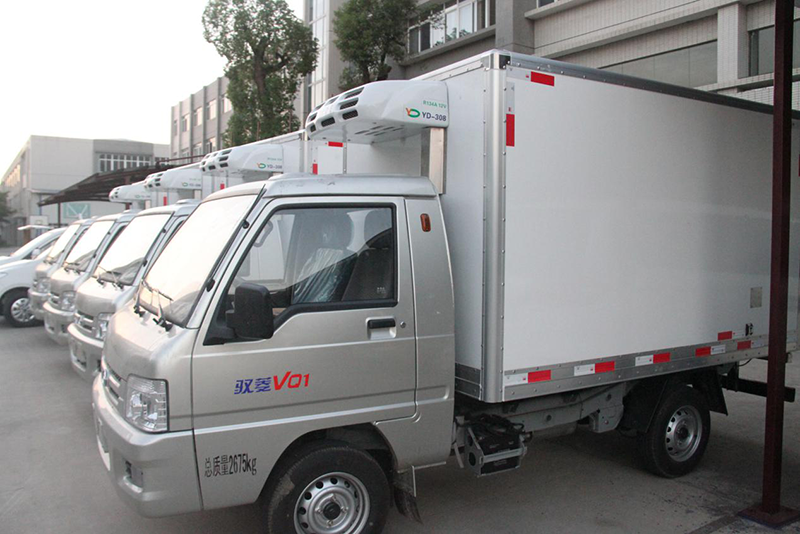As a special vehicle, there are some matters to be paid attention to before the refrigerated vehicle, so as not to produce some on the way
For unnecessary trouble, it is recommended to carry out the following inspection before loading the goods:

1. The supply of diesel fuel or gasoline for the refrigerated vehicle must be sufficient to ensure that the engine runs to at least the next checkpoint.
2. The engine oil of the refrigerated vehicle is supplied at the (full) mark. Do not overfill (replace it once a year).
3. Check the coolant level gauge of the refrigerated vehicle to see if the amount of coolant is correct and the pointer should be within the white range.

If the coolant level is within the red range, add coolant to the coolant tank. The usual coolant is glycol with water
(in different proportions according to the actual situation of the place where the product is used) and shall provide protection up to -34℃
Do not freeze. Note: do not open the lid of the coolant tank while the coolant is hot.
4. The battery terminal of refrigerated vehicle must be firm without corrosion. The electrolyte should be at the full mark.
5. The belt must be good and adjusted to the proper tension. The droop degree is 13mm across the center of the pulley.
6. Electrical check all electrical connections in the electrical control line to make sure they are firmly fixed. Wires and terminals
There should be no corrosion, burning, cracking, or moisture.
7. Visually inspect the structure for leaks, loose or broken parts, and other damage.
8. The gasket of the gasket unit shall be firmly pressed and in good condition.
9. The coil of condenser and evaporator of refrigerated vehicles should be clean and free from dirt.
10. Defrost drain check the defrost drain hoses and connections to make sure they are unimpeded.
11. When the cargo compartment is loaded, the cargo shall not block the air outlet and return outlet of the evaporator and keep the cool air circulation in the cargo compartment unimpeded to ensure that there are no hot spots in the compartment
Therefore, scientific maintenance and maintenance, not only can ensure the integrity of the equipment but also can reduce operating costs.